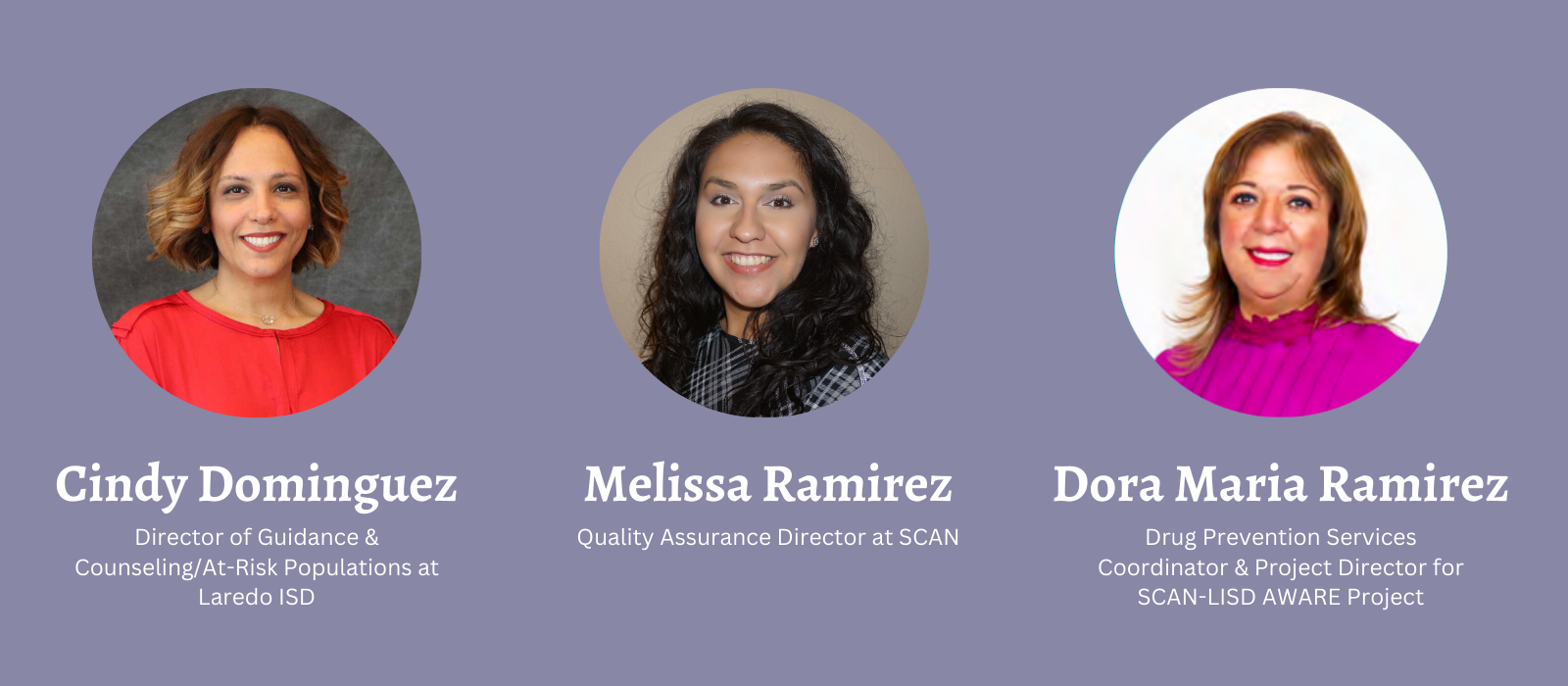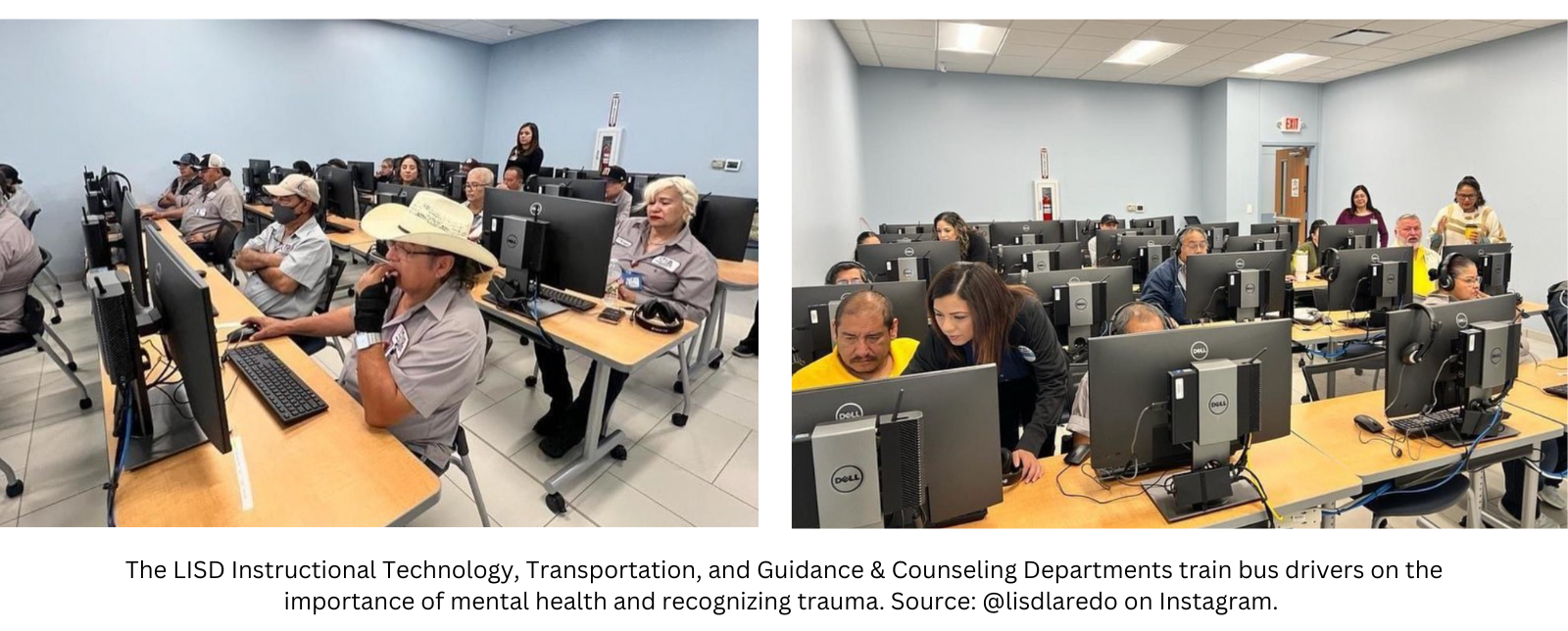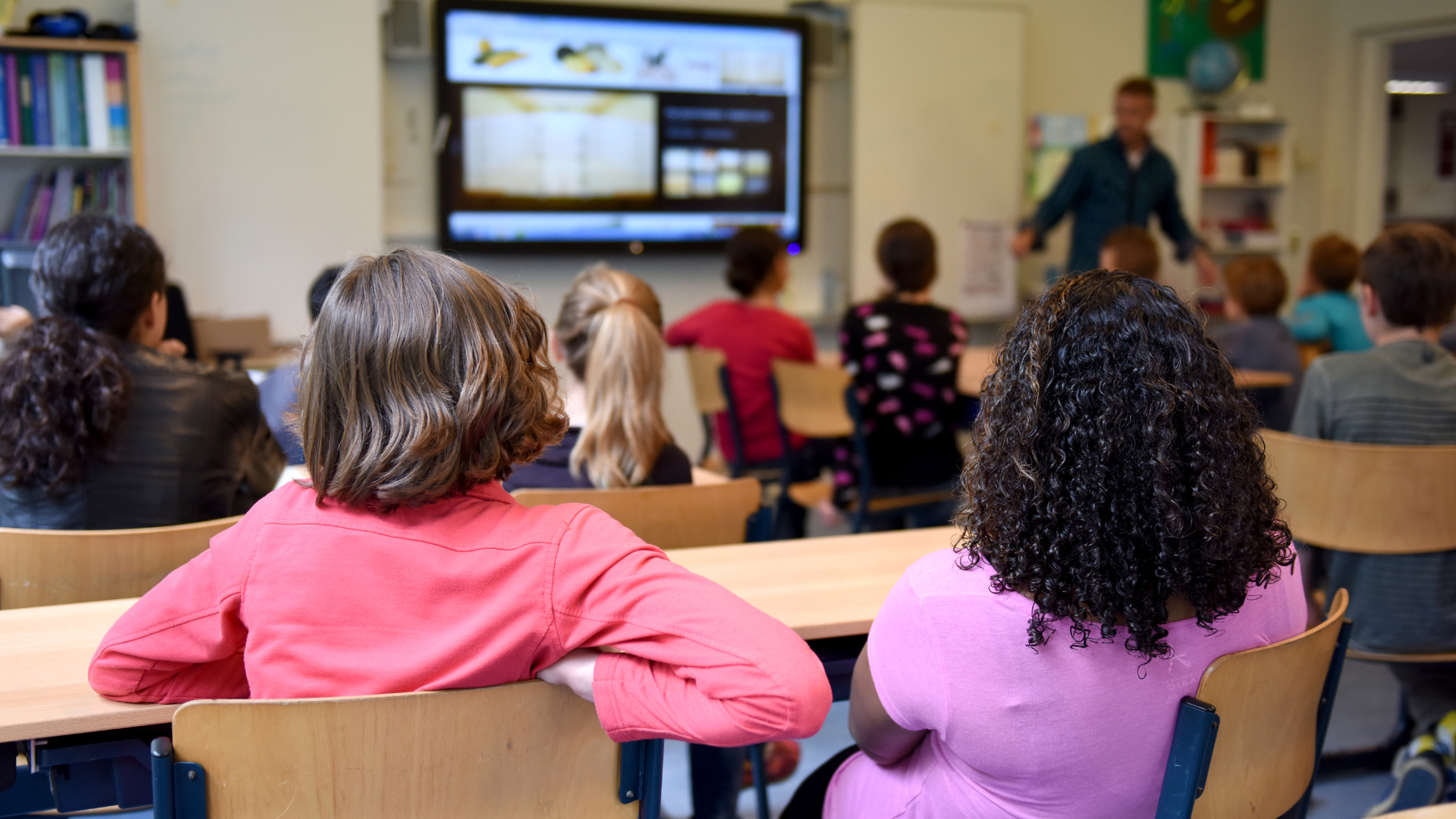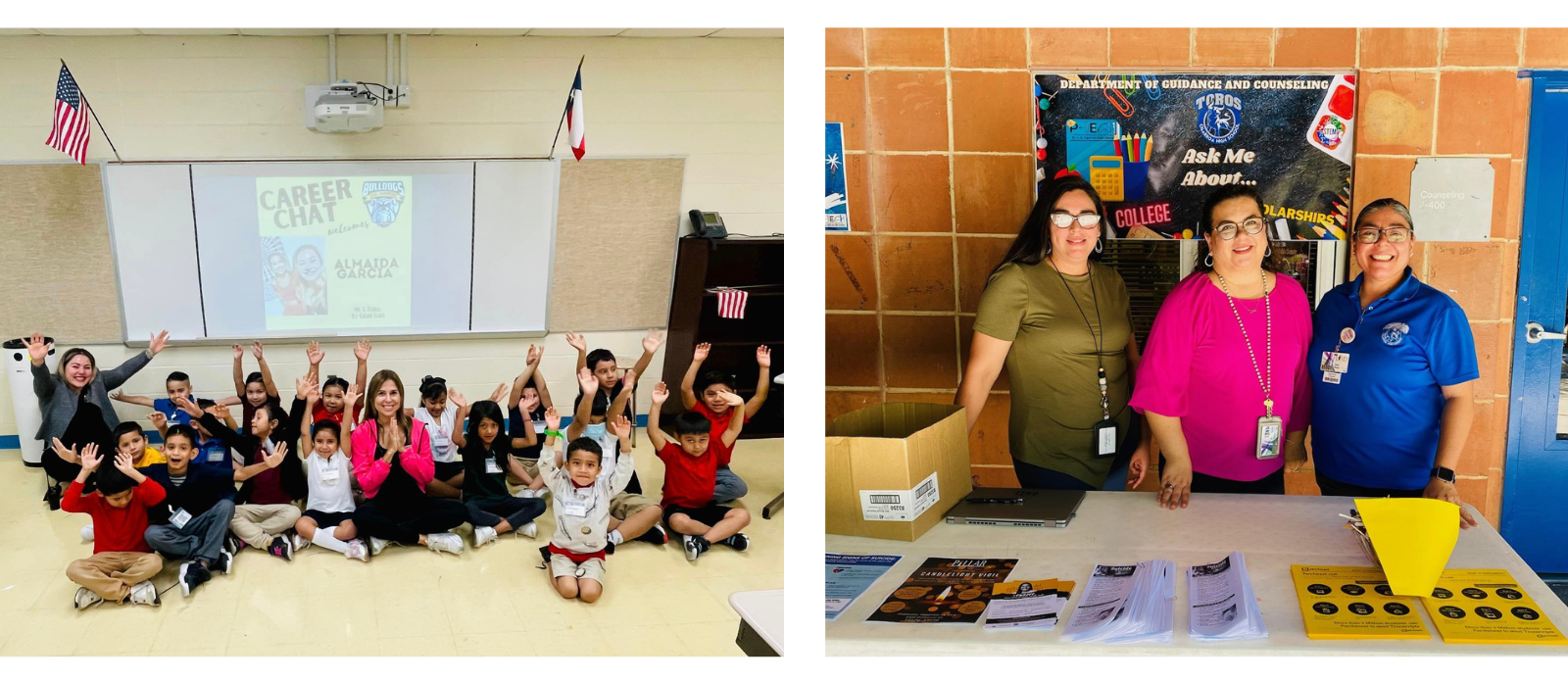- Grief and Trauma-Informed Practices
- Positive Youth Development
- Professional Development and Training
- Substance Misuse Prevention and Intervention
- 1st-12th Grade
In this series, we’ll highlight impactful mental and behavioral health best practices across Texas to inspire schools interested in developing similar opportunities for youth.
The team at Laredo ISD has partnered with community-based nonprofit Serving Children and Adults in Need (SCAN) to implement a three-tiered public health model— which includes evidence-based universal and secondary prevention and tertiary intervention strategies. The SCAN-LISD AWARE Project provides school-based mental health programs and services to help students and families while also providing training to school staff.
LISD has 33 educational institutions with a yearly average of 25,000 enrolled students and over 4,500 employees.
When considering the Texas School Mental Health Framework, Laredo ISD’s partnership with SCAN addresses multiple components of a comprehensive school mental health system including positive youth development, trauma-informed practices, substance use prevention and intervention, and professional development and training.
Check out our conversation with Director of Guidance & Counseling/At-Risk Populations at LISD Cindy Dominguez, Quality Assurance Director at SCAN Melissa Ramirez, and SCAN-LISD AWARE Project Director Dora Maria Ramirez.

1) How did this get started? Can you tell us about the steps you took to implement these services?
Dora: SCAN has provided mental health services in Laredo ISD for many years, with many different programs around prevention, intervention, and treatment. We always had buy-in from the superintendents, so going in and offering our services has never been an issue.
Melissa: We started the SCAN-LISD AWARE Project with a six-month planning period, which usually happens with SAMHSA-funded programs, and then we started going into schools and providing services in September 2023.
Cindy: With this particular grant, we were able to get more resources for Laredo ISD to implement a three-tiered mental health program. Some of those resources include additional school counselors, education specialists, and staff trainers.

2) Can you give examples of your work in Laredo ISD?
Dora: We’re doing presentations for the universal population, Youth Mental Health First Aid and Psychological First Aid training for staff, and information dissemination. We’re also doing the secondary education component, which is going into the school and offering services. That includes helping youth with self-regulation, expressing and understanding their emotions, developing social relationships, and positive decision-making and problem-solving behaviors.
Then the tertiary, which is offering mental health counseling referrals while we’re there on site. Many parents can’t take their kids out of school and bring them to our office, so we set up offices for our counselors in some schools to be available for students. We wanted the students to know that they had somewhere to go for support.
Melissa: Once we had our staff on board and fully trained, they specifically provided Positive Action lessons and the curriculum-based support group (CBSG) program to students.

3) Can you share more about this work’s impact so far? How is your team measuring success?
Melissa: Based on our 2023 evaluation report, one of the main outcomes was that 1st to 12th-grade participants demonstrated a significant increase in drug prevention skills after completing Positive Action lessons.
We also administered the Rosenberg self-esteem test, which showed that students had an increase in self-esteem after completing Positive Action lessons. CBSG participants, which were 6th to 12th graders, also demonstrated an increase in social/life skills related to situations involving alcohol, tobacco, and other drug (ATOD) use.
We looked at the education component as well as the training and tertiary intervention services component. With the Youth Mental Health First Aid, Laredo ISD employee participants showed an increase in mental health awareness after the training.

4) Has anything surprised you while doing this work in schools?
Cindy: For me, the biggest surprise was the buy-in from departments at the district— there was no hesitation. You could tell there was a genuine interest in educating people about identifying trauma.
One thing that stuck with me was that our Director of Transportation said, “Bus drivers are the first ones to see the students and the last to see them. They see how students leave their homes and how they feel about going back home.”
We underestimate the value that other departments and “invisible staff” bring to our students’ mental health. It’s not just counselors and psychologists who are invested.
Dora: There has been a huge awareness boost, especially for teachers. Because of the Youth Mental Health First Aid, teachers are more informed and look at their students’ behaviors through a new lens.
5) What plans do you have for the future of this project?
Dora: We hope to get the grant renewed once this grant ends because I believe that the mental health services and everything else we’ve been doing are essential.
Our Youth Mental Health First Aid trainer is also starting to offer the training in Spanish, so we’ll provide it to parents and school staff. We want to target the full LISD community – teachers, auxiliary staff, students, caregivers – and be culturally sensitive to their needs.
Stay tuned for more Texas school district stories
Thank you to Cindy, Melissa, and Dora for telling us about their work in Laredo! Visit SCAN’s site to learn more about the SCAN-LISD AWARE Project.
Our Texas School Mental Health website gives school mental health leaders the tools they need to develop a comprehensive school mental health system. Visit our best practices page to learn more about resources and programs for schools.
